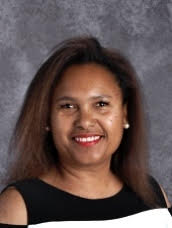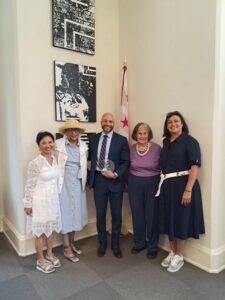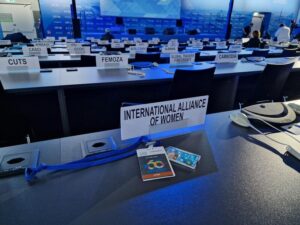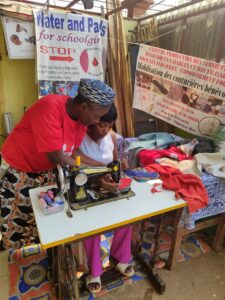Recently Lene Pind, Communications Chair of the International Alliance of Women, shared a graphic nove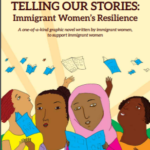 l created by the Ontario Council of Agencies Serving Immigrants (OCASI) to support Immigrant Women to Canada. As the subtitle states, “it’s a one-of-a kind graphic novel written by immigrant women to support immigrant women”. This project is part of the Prevention of Sexual Violence and Harassment Project, funded by the Ministry of Citizenship and Immigration (MCI).
l created by the Ontario Council of Agencies Serving Immigrants (OCASI) to support Immigrant Women to Canada. As the subtitle states, “it’s a one-of-a kind graphic novel written by immigrant women to support immigrant women”. This project is part of the Prevention of Sexual Violence and Harassment Project, funded by the Ministry of Citizenship and Immigration (MCI).
OCASI offers the graphic novel for free to individuals, social agencies, educational institutions or groups of people interested in discussion. The use of the graphic novel as a communication tool is a brilliant idea. The combination of visuals and short text ensures the graphic novel is easy to read. This medium, alleviates language barriers that a text rich document might present for non native English speakers.
Four women; Kose, Magali, Amal and Manuela share their personal stories as survivors of gender based violence. In a very brave way the heroines invite the reader into their lives and unveil the challenges they faced in their adopted country. Though the stories are laced with violence, they are so gripping that one is compelled to read all four at once. The common message of each story is that it takes much courage to face the destructive nature of violence but, with support, women can rebuild their lives by connecting with a network of advocates. The network of women who supported Kose, Magali, Amal and Manuela proved to be ingenious problem solvers, counsellors, and protectors.
At the time the graphic novel was written I suspect these 4 survivors had no knowledge of the #MeToo campaign or the “Times Up” movement. That language had not yet entered the social consciousness. What they did know was that the emotional and physical attacks directed at them were the opposite of kindness or justice.
A common motivator for people to immigrate to a new country is to seek opportunities for their wellbeing. Instead these women were preyed upon by violent men in power positions. Supernaturally, with a gesture of hope Kose, Magali, Amal and Manuela harnessed enough strength to raise their hand to say, “I am deeply hurt but I will not be defeated by violence against my person”!
It would be interesting to know if the women who contributed their stories would be available for speaking engagements. Did the four women get to meet each other and create an additional circle of friendship for themselves? What are they doing now? What was the healing process for each woman? Also of interest is whether or not OCASI plans to expand the program with a series of graphic novels on issues that face immigrant women.
These 4 women, Kose, Magali, Amal and Manuela, might be surprised to know that they are part of the “Times Up” movement, the #MeToo campaign and that their story made it to Denmark where Lene lives. I hope they feel the admiration of all the women who stand by them. Thank you “Soul Reclaimers” for sharing your stories to help others reclaim their dignity and find Peace.
Direct Link to Full 44-Page 2017 Graphic Novel:
Cheryl Hayles
Vice President North America, International Alliance of Women
